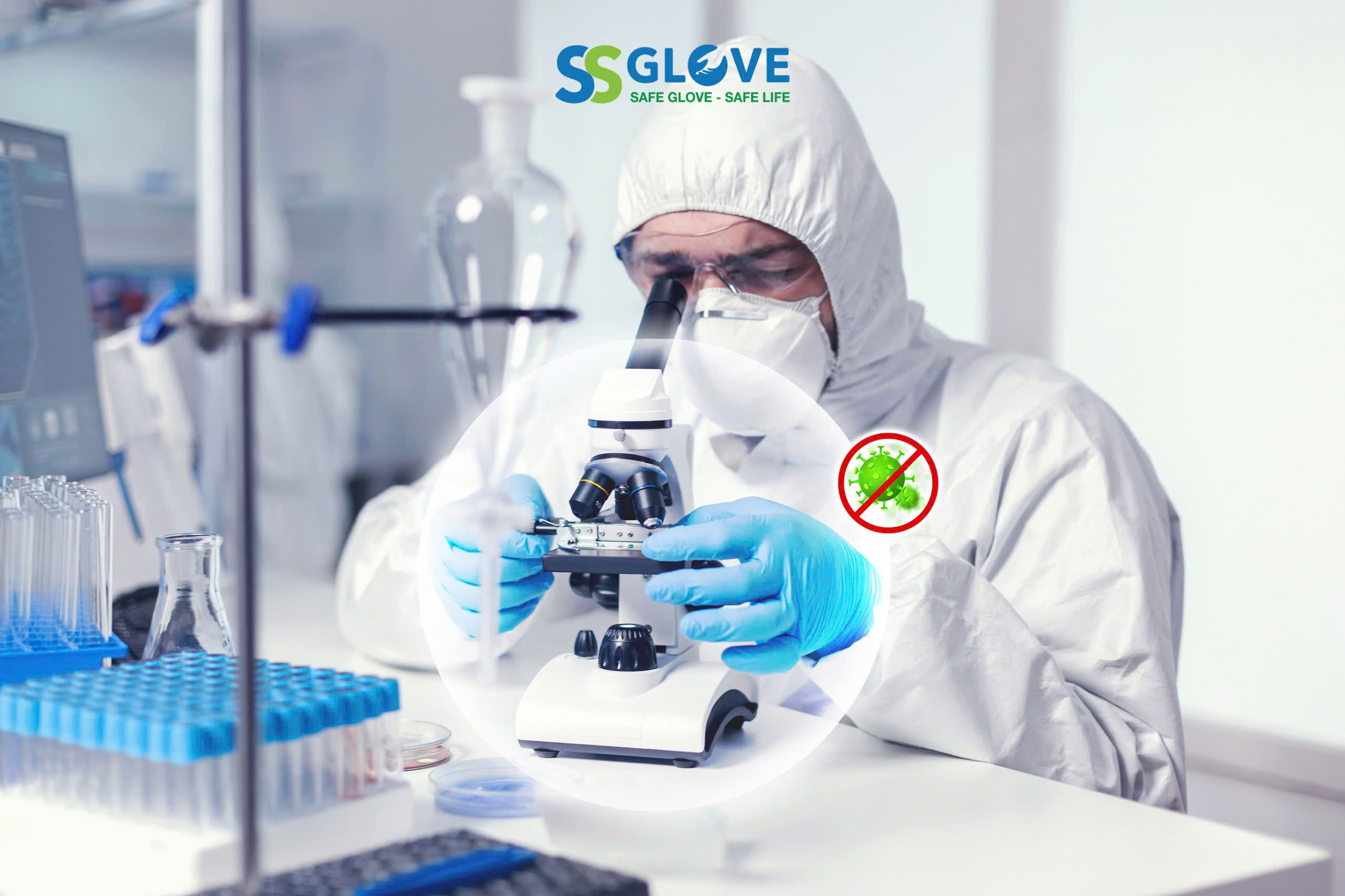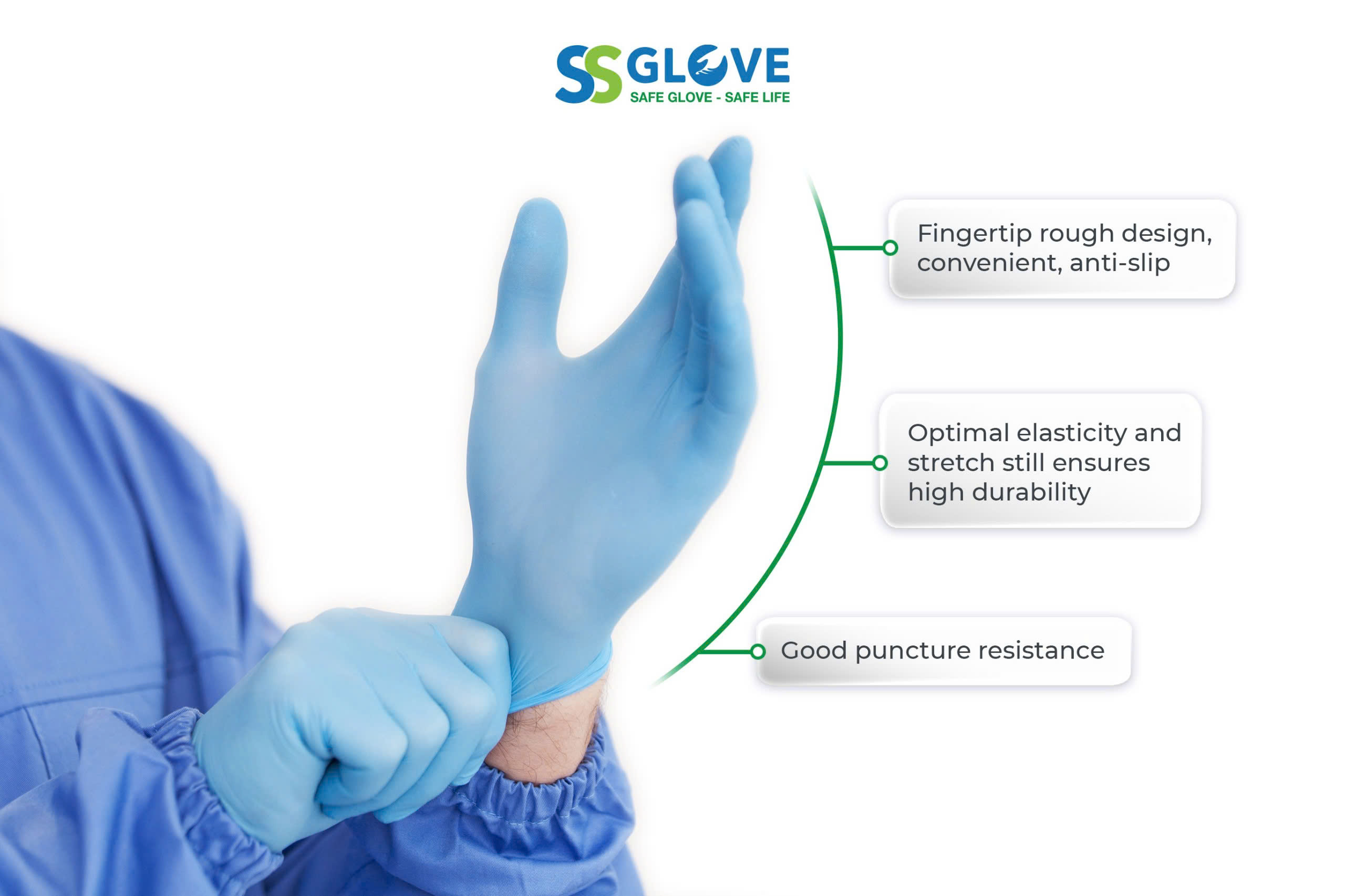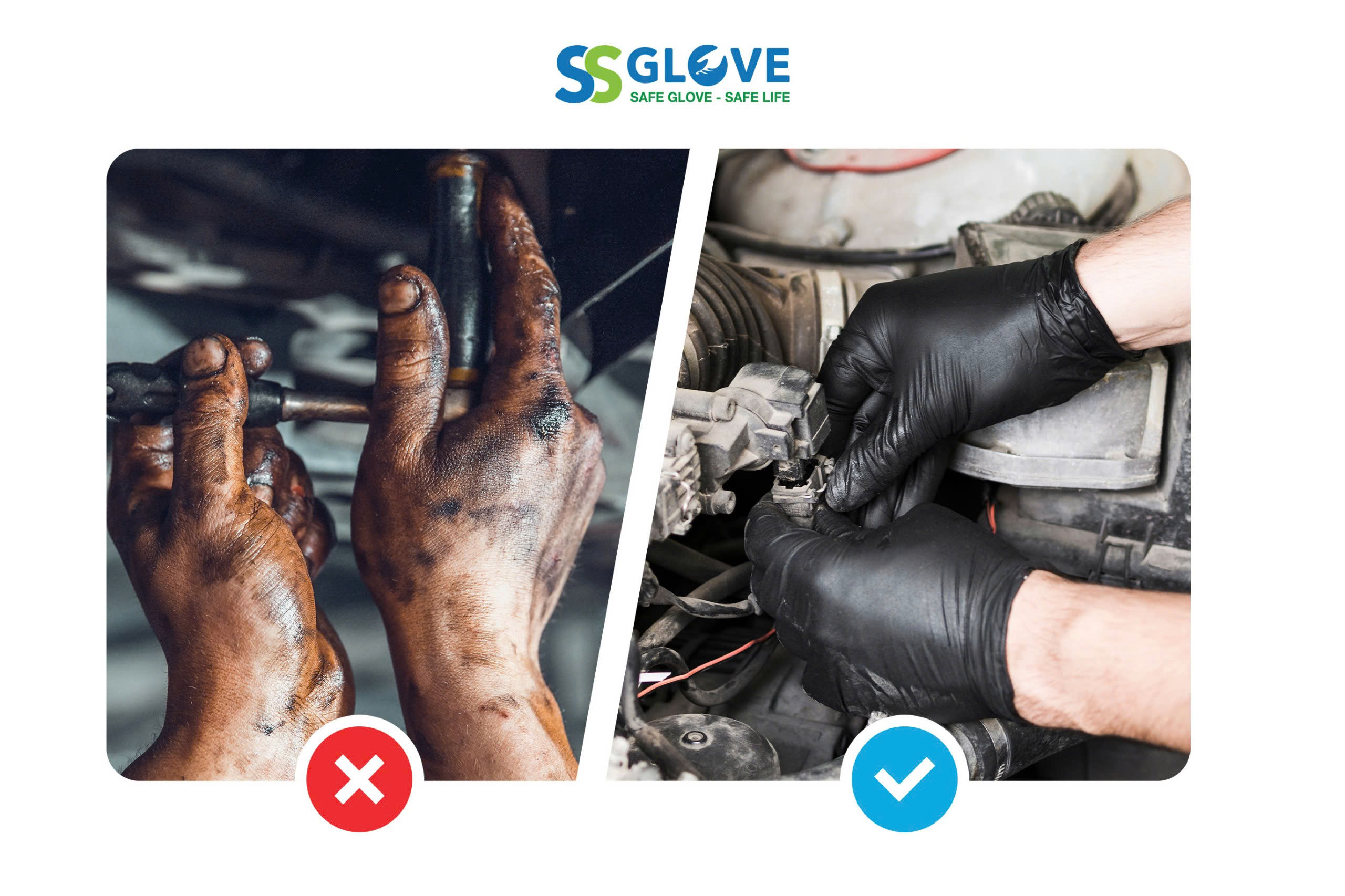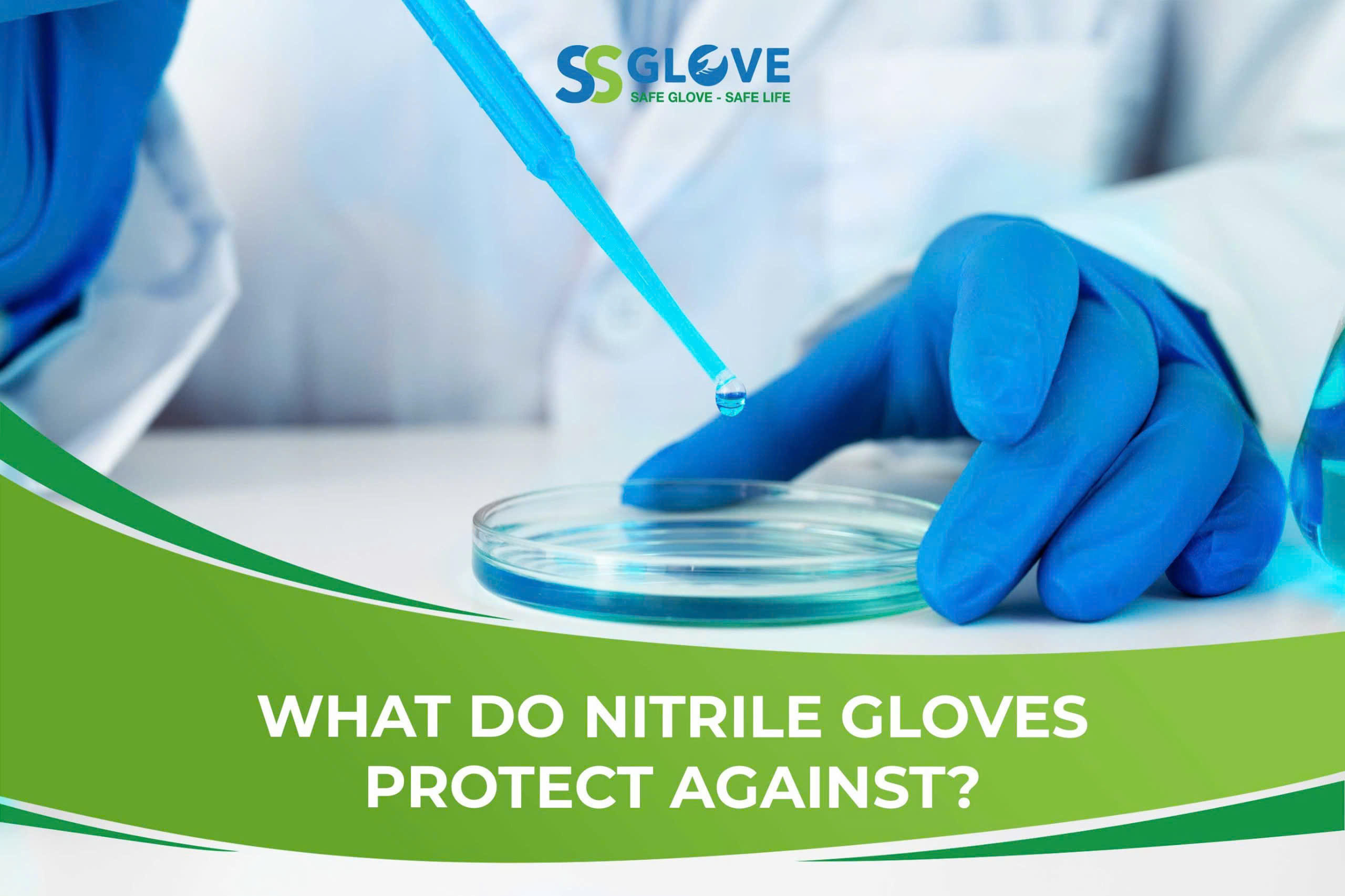Nitrile gloves are unique among personal protective equipment (PPE) since they are dependable and adaptable against a wide range of threats. Their ability to effectively shield against a wide range of chemicals and pollutants has made them important in both industrial and clinical contexts. What precisely are nitrile gloves useful at protecting against then? Now let’s get into the details.
1. Chemical Exposure
Nitrile gloves are renowned for their resistance to a wide range of chemicals, including acids, bases, oils, solvents, and many other hazardous substances. This makes them a preferred choice in laboratories, pharmaceutical industries, manufacturing plants, and automotive workshops where workers are frequently exposed to such materials. The impermeability of nitrile to these chemicals helps prevent skin contact and potential absorption, reducing the risk of chemical burns, irritation, and other adverse effects.

2. Biological Hazards
In healthcare facilities, laboratories, and other environments where exposure to biological hazards such as bloodborne pathogens, bacteria, and viruses is a concern, nitrile gloves offer excellent protection. Their high puncture resistance reduces the risk of accidental needle sticks or cuts from sharp objects contaminated with infectious materials. Additionally, nitrile gloves are often manufactured to meet stringent standards for barrier protection, ensuring a reliable shield against microbial transmission.
3. Allergens and Irritants
For individuals with latex allergies or sensitivities, nitrile gloves provide a safe alternative without sacrificing protection. Unlike latex gloves, which can trigger allergic reactions in some people, nitrile gloves are latex-free, making them suitable for use in diverse populations. Moreover, their hypoallergenic nature minimizes the risk of skin irritation, making them comfortable for extended wear.

4. Mechanical Risks
Beyond chemical and biological hazards, nitrile gloves also offer resilience against mechanical risks such as abrasions, cuts, and punctures. Their durable construction and high tensile strength make them capable of withstanding rigorous tasks without compromising protection. Whether handling sharp objects, operating machinery, or performing intricate procedures, wearers can trust nitrile gloves to provide a reliable barrier against physical harm.

5. Contaminants
In environments where contamination control is paramount, such as food processing facilities, and laboratories, nitrile gloves play a crucial role in maintaining hygiene standards. Their low particle release and excellent cleanliness properties help minimize the risk of cross-contamination and maintain product integrity. Whether handling sensitive electronic components or preparing sterile medical supplies, nitrile gloves offer a contaminant-free solution.
In summary, nitrile gloves are a versatile form of personal protective equipment that provides robust protection against a wide array of hazards. From chemical exposures and biological risks to mechanical dangers and contaminants, their inherent properties make them indispensable across various industries and applications. As the demand for reliable hand protection continues to rise, nitrile gloves stand as a steadfast guardian, ensuring the safety and well-being of individuals worldwide.








